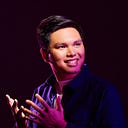Research Interest Statement
For Microsoft’s 2025 Undergraduate Research Internship in Computing
I am fascinated by the intersection of Computer Vision, Graphics and Multimedia, and Human-Computer Interaction, particularly within the context of Research Software Engineering. I am drawn to the potential of these fields to create impactful and accessible technology, bridging the gap between human perception and digital interfaces, especially for neurodivergent individuals.
My passion for building began early, developing full-stack applications from the age of 12. This early experience fostered a deep appreciation for the entire software development lifecycle. At 16, I pursued UI/UX design at Symph, a design agency in the Philippines, further honing my understanding of user experience. However, my passion for building and engineering remained. This drive culminated in my first official Software Engineering internship this past summer at Edgur, an EdTech startup in Atlanta, where my contributions led to a contract extension after the internship.
My academic pursuits have further fueled this passion. In my linear algebra and calculus coursework at Minerva University, I developed algorithms for image compression and co-developed Markov matrices to predict foot traffic and optimize library interior design at Korea’s Namsan Library. This project solidified my belief in the power of computational tools for real-world problem-solving.
My experience as a game developer at Northeastern University’s ReGame-XR Lab for the Summer of 2023 provided invaluable practical experience in user-centered design. Working with a team of neurodivergent individuals like myself (ADHD & OCPD), I used Unreal Engine 5 to co-develop “Ice Cream Peers,” a game designed to help nonverbal autistic children and their parents acclimate to Augmentative and Alternative Communication (AAC). I also contributed to the award-winning “Sugar Slay,” a Unity-based iOS game aimed at educating young adults recently diagnosed with Type 2 diabetes. These experiences instilled in me a methodical and informed approach to research problems.
Early in the development of “Ice Cream Peers,” we explored integrating eye-tracking to gain deeper insights into nonverbal communication in children with autism. We envisioned using this data to personalize the game experience and potentially inform future assistive technologies. However, due to limited resources, time constraints, and the need to prioritize the core AAC keyboard functionality for our stakeholders, we deprioritized the eye-tracking component. This experience, though ultimately redirected, provided valuable insights into the challenges and opportunities of integrating cutting-edge technology into assistive applications. My continued fascination with eye-tracking led me to develop an early-stage prototype for a more accessible eye-tracking system using iPhones, building upon existing work from Carnegie Mellon University.
I am eager to further explore and advance research in areas like computer vision and HCI, particularly within a Research Software Engineering role at Microsoft. Growing up in the Philippines, where access to advanced technical mentorship was limited, I cultivated my technical skills through self-directed learning. This internship offers an unparalleled opportunity to bridge the gap between my self-taught knowledge and formal research practices, providing invaluable hands-on research experience and mentorship in computer vision and HCI, specifically within the Research Software Engineering context.
